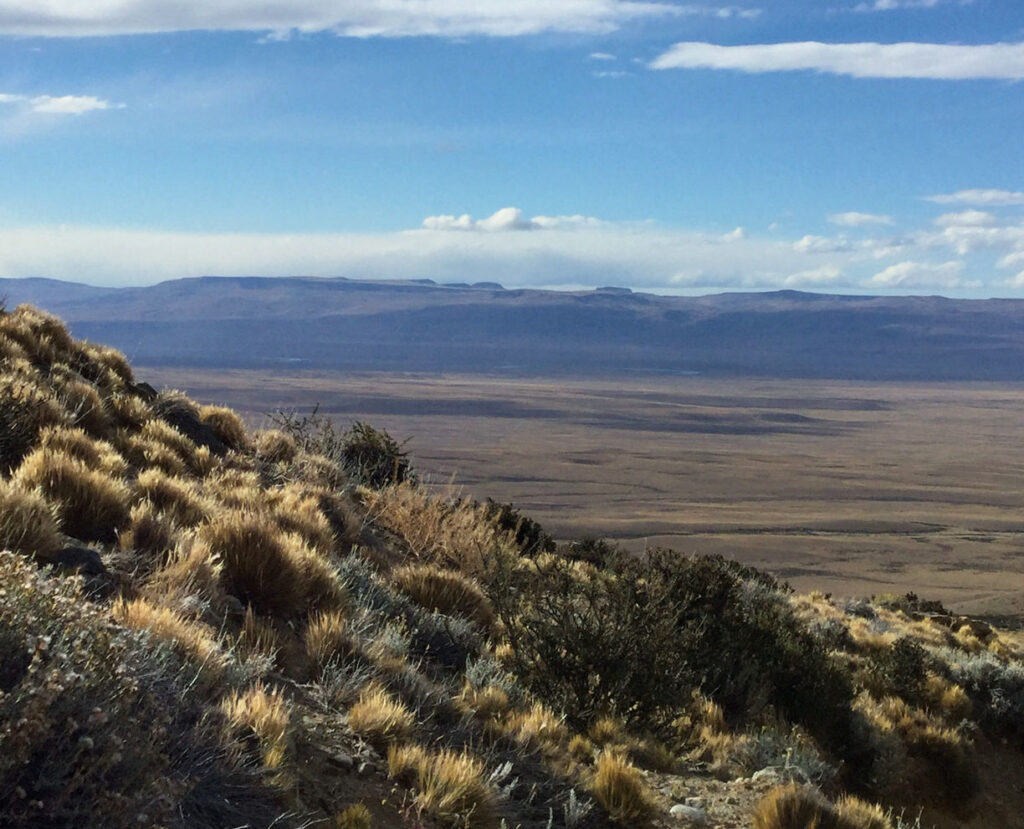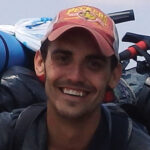Advertisement
Out to (Vegan) Lunch?
A vegan cycles 5,800 km in the land of steak

It began with the writing of my own obituary—an exercise meant to give one direction in life. It spoke beautifully of all the wonderful things I’d at no point done. I never imagined, in 2015, I’d come dangerously close to having it published.
I had just cycled 62 km (38 miles) past the Bolivia-Argentina border, a quaint little outpost through which, reportedly, 80 to 90 percent of the country’s cocaine routinely passes. Aggressive drug-running tactics make Salvador Mazza a potentially dangerous crossing. Initially, this worried me, though unnecessarily.
Advertisement
Cold comfort
What I should have been worried about was where I’d be sleeping for the next four months, as I—a novice touring cyclist on my very first tour—attempted to navigate across a country I’d never been to, on the cheapest bicycle I could find.
Although I hadn’t exactly trained, the plan was to pedal nearly 6,000 km (3,728 miles) from Argentina’s northern tip to the southernmost city in the world at the foot of South America, or die trying. I had already written out several heartfelt goodbyes, just in case.
I thought about them (my goodbyes, that is) that first night, laying out my sleeping bag in the dingy public restroom of an open-air recreation complex. Like few four-star hotels, my room was equipped with a steel-cage door, which, thankfully, I was able to padlock shut.
At 1 am, I was awoken from my cold concrete slumber by a rowdy gang of bikers; I heard laughter and the clanging of bottles. When they inevitably approached the men’s room, shaking and pulling at my cell door, I watched wide-eyed from the darkness. I couldn’t possibly have understood it at the time, but I would later come to welcome bathroom floors with great enthusiasm.
Advertisement
Fuelling the engine
On the road, I learned it was not just my safety I had to be concerned about. Historically, I’ve never taken good care of my health, and the more I began to see my anatomy as a machine I had to fuel to get from point A to point B, the more I realized I had to keep serious tabs on the health of my body and everything I put inside it.
I was 12 years old when I stopped eating meat—a decision that has affected my entire life. In university, I first witnessed veganism. Although it seemed a bit excessive, by the time I was in my early twenties I saw it as my responsibility to join the cause and stick with it … even if I found myself in the middle of South America.
Argentina is internationally known for having THE best steak in the world. Perhaps that’s why citizens eat an average of 44 kg (97 lbs) of beef per year! So how would a vegan survive there? At restaurants, the options were discouraging at best. Waitresses would frequently claim they didn’t even have vegetables, though I could see portions garnishing their steaks.
Surprisingly, pizza turned out to be a common menu item—and my salvation. I’d use my novice Spanish skills to order up cheeseless, meatless pies. (Although, try explaining to owners of little cantinas out in the farmland why you don’t eat cheese!)
Tip: Download a translator app to simplify food modifications abroad.
Most days I’d just fire up my cooker—sometimes on a hotel room floor, sometimes to an audience of stray dogs. Typically, I’d cook things such as oatmeal, granola, pasta, rice, beans, lentils, and soup. Small-town fruit stands would often give me fruit and vegetables, and the fruit in Argentina was the best I’d ever had! A person could develop a serious dependency. With more fresh and fewer processed foods in my diet, I was eating healthier than ever before.
Advertisement
Keeping the fire stoked
Nevertheless, I had to begin tracking calories, as I would easily burn through 4,000 calories per day. High-calorie, high-protein foods such as nuts had never been a part of my regimen before, but in all of my exercising I began to develop cravings.
My grandmother always says your body will tell you what it needs. On those days when I had just come out from four nights of wild camping in tarantula country, it told me I needed to check into a cheap hotel with a bag of cookies, like some adulterer. Back in Canada, finding good cookies without milk ingredients was nearly impossible, but Argentine cookies were lush, and a few were vegan.
The next few months found me cooking in the oddest of places: police and ambulance stations, a concert hall, a bakery, an abandoned inn, even inside the Chilean border. Halfway through that circuit, however, things took an unpleasant turn. Trees and rivers disappeared one at a time. Towns mostly vanished altogether. Most of what was left was pure desert, and I was all alone.
Advertisement
Alone in the desert
I was right to have concerns, but they did me no good. I still battled relentless 100 km/hour winds with the power to roll my entire bicycle, and hid from hailstorms. I carried up to 13 L (3.5 gallons) of water, still begging for more and collapsing by the road. By night I had no choice but to begin sleeping next to animal parts in quarries and culverts under the quiet highway. Some things you just can’t prepare for.
Things go wrong, bodies grow tired, but getting sick out in the vast desert is a death sentence. Sometimes travellers can’t go a week without being ill, but here I went four months covered in dirt and sleeping under bridges, and I’d never been stronger.
The secret truth is that vegans are healthy and virile (some of us may be a little crazy), and I’m living proof we can do anything meat eaters can do.
Vegan packing tips
Travel spice kit
Create your own travel spice kit by rolling spices up in resealable airtight storage bags. Various flavours of vegetable stock also exist for homemade soup.
Can opener
Don’t forget your pocket can opener. Some shops only sell canned produce.
Freeze-dried food
This handy travellers’ staple comes in vegan options now. Buy a couple of packs for when you need something vitamin-packed and delicious.
10 insights for first-time adventurers
10) For every good day on the road, there are five bad ones. Just remember, if you’re not cycling uphill and upwind on an unpaved road in the middle of the desert, things could be worse.
9) People crave human interaction. When alone, it’s normal to have lengthy conversations with yourself. As soon as you give your bicycle a name, you’ll start talking to it too.
8) You can do it if you try. Don’t give up. People will also see you trying and want to help.
7) Never take travel advisories as gospel. Think of them as an untrusting, risk-averse grandmother who would rather have you travelling in a bubble.
6) Those who don’t believe in animal-assisted therapy have yet to hold a wild armadillo.
5) There will be times when you are absolutely terrified and want to quit, but after it’s all over and done with, it’s that fear and anticipation you miss the most.
4) One can be happy with next to nothing, but once your iPod dies, your life has ended.
3) Cycle tours are for your enjoyment. Don’t get caught up trying to make them crowning achievements in life, or expect them to fulfil or change you as a person. Nothing can live up to that.
2) Pumas and snakes are just as afraid of you as you are of them. Tarantulas aren’t afraid of you, though. Sorry.
1) Making sacrifices can make you feel like a strong person, but sacrificing on behalf of other lives—great and small—makes you proud of the person you are.





